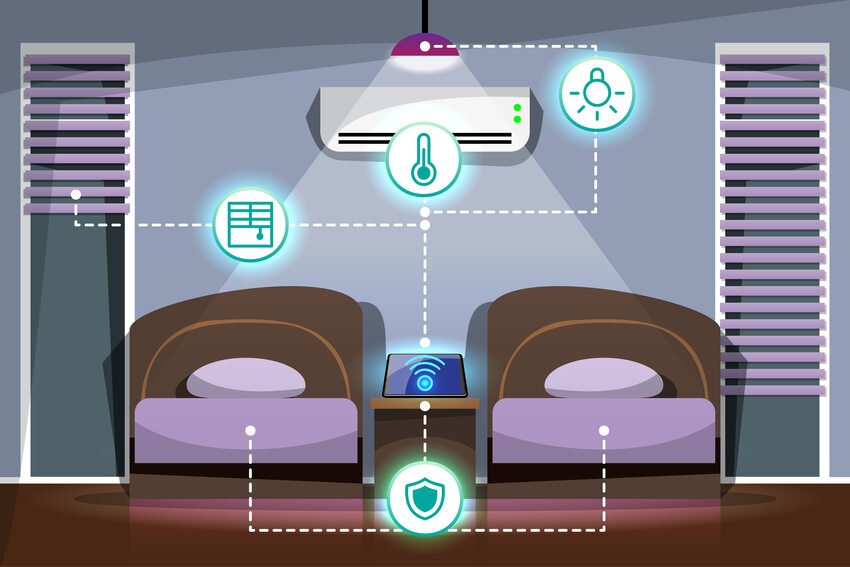The open road can quickly become a nightmare when a motorcycle accident leaves you facing devastating back or spine injuries. These traumatic incidents don’t just affect your body; they can completely reshape your future, relationships, and financial stability. Approximately 15 percent of motorcycle crash victims suffer neck and back injuries, including spinal cord injuries, making this knowledge essential for every rider and their family members who want to understand the path ahead.
Understanding Common Types of Back and Spine Injuries
Motorcycle accident injuries to the back and spine represent some of the most serious injuries trauma victims can experience. The violent forces involved in these crashes can cause damage ranging from minor muscle strains to complete paralysis.
Complete spinal cord injuries mean there’s no sensation or voluntary movement below the injury site. You won’t feel touch, pain, or temperature, and you can’t move muscles in the affected areas. Incomplete injuries, however, allow some nerve signals to pass through the damaged area.
The ASIA Impairment Scale helps doctors classify these injuries from A (complete) to E (normal function). Your classification directly impacts your prognosis and back and spine injury recovery potential.
Cervical and Thoracic Spine Damage
Cervical spine injuries affect the neck vertebrae and can cause quadriplegia, affecting all four limbs. Breathing complications often require ventilator support, and victims may need assistance with basic daily activities permanently.
Thoracic spine injuries typically result in paraplegia, affecting the lower body while leaving arm function intact. These injuries can disrupt bowel and bladder control, requiring ongoing medical management.
With South Carolina reporting over 3,000 motorcycle accidents annually and spinal injuries occurring in nearly 20% of severe crashes, understanding the specific types of back and spine damage becomes crucial for every rider and their family.
South Carolina’s warm climate and scenic highways make it a popular destination for motorcyclists year-round. The state’s coastal routes and mountain roads attract riders from across the Southeast, but unfortunately, this also means higher accident rates during peak riding seasons.
When catastrophic injuries occur, seeking the expertise of a Motorcycle Accident Lawyer in South Carolina becomes vital, as such professionals understand both the medical complexities and legal nuances of these cases. With a skilled advocate, you can ensure that insurance companies do not minimize your claim while you’re focused on healing and recovery.
Immediate Medical Response and Critical Treatment
Recognizing these devastating injury patterns is only the first step; what happens in the critical minutes and hours following a motorcycle crash can determine whether a victim walks again or faces permanent disability.
Emergency Scene Protocol
Never move someone with a suspected spinal cord injury from a motorcycle crash unless they’re in immediate danger from fire or traffic. Improper handling can turn a recoverable injury into permanent paralysis. Emergency responders use specialized backboards and neck braces for safe transport.
Signs requiring immediate emergency response include loss of sensation, inability to move limbs, severe neck or back pain, and difficulty breathing. If the victim is conscious, keep them calm and still while waiting for professional help.
Advanced Hospital Treatment
Emergency departments use CT scans and MRIs to assess spinal damage quickly. Some hospitals still use high-dose steroids within eight hours of injury, though this treatment remains controversial among medical professionals.
Timing is everything for surgical decompression. The sooner surgeons can relieve pressure on the spinal cord, the better the chances for recovery. Level I trauma centers offer the best outcomes with their specialized teams and equipment.
Financial Impact and Long-term Costs
Understanding the recovery process reveals a sobering reality—spinal injuries from motorcycle accidents can generate medical costs exceeding $1 million in the first year alone, making financial planning as critical as medical treatment.
Staggering Medical Expenses
Over the first year after suffering the injury, the person could incur up to $1.37 million in expenses. Victims rarely recover from this type of spinal cord injury. They may require a ventilator and skilled nursing for life, to the tune of $6 million in expenses for a younger victim. These figures don’t include home modifications, adaptive equipment, or lost income.
Emergency department visits, surgical procedures, and intensive care stays create immediate financial pressure. Many families discover their insurance has gaps that leave them responsible for hundreds of thousands in medical bills.
Insurance Coverage Challenges
South Carolina’s minimum insurance requirements often prove inadequate for catastrophic injuries. Personal Injury Protection (PIP) benefits have strict limitations, and many policies exclude certain types of long-term care.
Underinsured motorist coverage becomes crucial when the at-fault driver lacks sufficient insurance to cover your damages. Without this protection, you might face massive out-of-pocket expenses even after winning a lawsuit.
Legal Rights and Building Your Case
With such staggering financial implications, knowing your motorcycle accident victim rights under South Carolina law becomes essential for securing the compensation needed to cover these extensive costs and protect your family’s future.
South Carolina’s Legal Framework
South Carolina follows modified comparative negligence rules, meaning you can recover damages even if you’re partially at fault, as long as your fault doesn’t exceed 50%. Insurance companies often try to shift the blame to reduce their payouts.
The statute of limitations gives you three years from the accident date to file a lawsuit. However, gathering evidence and building a strong case takes time, so don’t wait until the deadline approaches.
Essential Documentation Process
Understanding how to file a claim for motorcycle injuries requires meticulous record-keeping. Medical records, police reports, witness statements, and photos from the scene all strengthen your case. Expert witnesses can explain complex medical issues to juries.
Life care plans become especially important for spinal injuries, as they project future medical needs and costs over your lifetime. These comprehensive documents help ensure you receive adequate compensation for decades of care.
Moving Forward After Catastrophic Injury
While pursuing legal compensation secures your financial future, the journey involves much more than money. Families must adapt to new realities while maintaining hope for the best possible recovery.
Spinal cord research continues advancing, with stem cell therapy and electrical stimulation showing promise. Support groups connect you with others who understand your challenges, providing both practical advice and emotional support.
The road ahead won’t be easy, but you don’t have to travel it alone. Medical professionals, motorcycle accident lawyers, family members, and fellow survivors all play important roles in your recovery journey. Focus on what you can control today while building the foundation for tomorrow’s possibilities.
Common Questions About Motorcycle Spine Injuries
-
What is the trauma after a motorcycle accident?
Post-Traumatic Stress Disorder (PTSD) symptoms can develop immediately, including avoidance, social withdrawal, concentration issues, impaired memory, feeling on edge, and being easily startled by sudden sounds or movements.
-
How long does spinal fusion surgery recovery take?
Recovery typically requires 3-6 months for bone healing, with physical therapy extending up to a year. Complete recovery depends on injury severity and your overall health before the accident.
-
Can weather conditions affect recovery outcomes?
Cold weather can increase pain and stiffness in injured areas, while humidity changes may affect surgical sites. Many patients report feeling weather changes in previously injured spinal areas.
Read Dive is a leading technology blog focusing on different domains like Blockchain, AI, Chatbot, Fintech, Health Tech, Software Development and Testing. For guest blogging, please feel free to contact at readdive@gmail.com.





